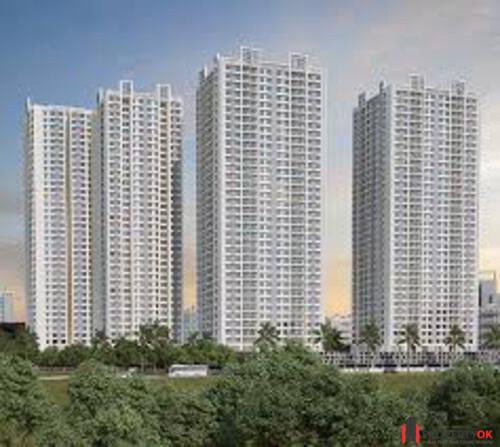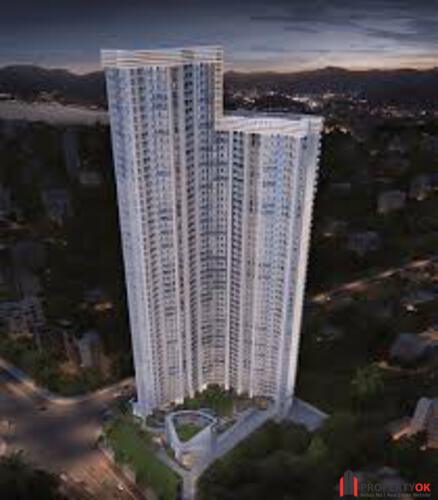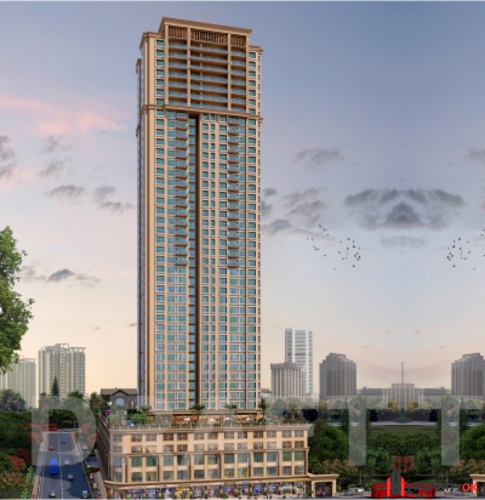Buying a home is a significant milestone in anyone’s life, and it’s a decision that should not be taken lightly. To ensure that you make a well-informed choice, following a home buyer guide and checklist is crucial. One of the most critical aspects of this process is selecting the right neighbourhood and community. In this blog, we will explore the importance of the neighbourhood and how to choose a community that aligns with your needs and preferences.
Looking for expert advice on the current real estate market? Get in touch with us now!

The Home Buyer Guide
Buying a home is one of the most significant financial decisions you’ll ever make, and it’s crucial to approach it carefully and make informed choices. The home buyer guide provides a structured path to navigate the often complex world of real estate, empowering you to make confident and booming decisions in your quest for the perfect home. Let’s delve into the key steps that compose this guide.
Define Your Budget
A clear understanding of your budget is at the heart of the home-buying process. Your budget is the cornerstone upon which you build your real estate journey. It involves a comprehensive assessment of your financial situation, considering your income, expenses, and potential mortgage rates. By defining your budget, you’ll determine how much you can afford to spend on a home. This process includes evaluating your income sources your monthly expenses, and examining any foreseeable changes in your financial situation.
Get Pre-Approved for a Mortgage
Once you’ve determined your budget, it’s crucial to move to the next step and secure pre-approval. Getting pre-approved entails a thorough evaluation of your financial situation by a lender who will provide a clear idea of how much they are willing to lend you. The pre-approval process typically involves a credit check, an analysis of your financial documentation, and an assessment of your creditworthiness. The pre-approval letter you receive will be a powerful asset when making home offers, demonstrating your readiness to purchase from sellers.
Choose the Right Real Estate Agent
A professional real estate agent is a linchpin in your home-buying journey. They bring knowledge, market expertise, and essential assistance that can streamline the process and lead to better outcomes. Your agent will offer guidance through every stage of the home-buying process, providing valuable advice market insights, and helping you negotiate the best possible deal. Their local knowledge is invaluable, as they understand the nuances of the real estate market in your desired area, which can make all the difference in finding the perfect home.
Home Buyer Checklist
The home buyer checklist is a tool to help you maintain focus, prioritize your needs, and avoid making impulsive decisions. It’s integral to the guide, allowing you to define your must-haves and nice-to-haves in a home. By breaking down your checklist room by room, considering your future growth and potential changes, and sharing it with your real estate agent, you refine your search and ensure that you invest in a property that aligns with your specific needs and preferences.
The home buyer guide is a comprehensive roadmap to ensure your home-buying journey is smooth, informed, and successful. It starts with defining your budget and securing a pre-approval mortgage, selecting the right real estate agent, and utilizing the home buyer checklist to guide your search. By following these steps, you can confidently navigate the complex real estate market and make choices that align with your financial goals and personal aspirations.

Read this blog to get home buying guide for first-time home buyers:
HOME BUYING: THE ULTIMATE GUIDE FOR FIRST-TIME HOME BUYERS
The Importance of Neighborhood
The neighbourhood you choose when buying a home plays a pivotal role in shaping your overall living experience and long-term satisfaction. It’s not just about the house itself; the surrounding area can significantly impact your quality of life. Let’s delve into why the neighbourhood is a critical factor in home-buying.
Safety and Security
Safety should be a top priority when selecting a neighbourhood for your future home. It’s not just about the physical structure of your house but also about the well-being of your family. Investigating crime rates in the area is a fundamental step. Speak with local law enforcement to get an accurate picture of the neighbourhood’s safety record. Additionally, spend time in the community to get a feel for its security, especially during evenings and weekends.
Proximity to Work and Amenities
A neighbourhood’s proximity to your workplace, schools, healthcare facilities, and shopping centres can have a substantial impact on your daily life. A shorter commute saves you time and reduces stress and transportation costs. Being close to essential amenities like grocery stores, medical facilities, and recreational areas can enhance your overall convenience and quality of life.
Schools and Education
The quality of local schools is vital, particularly if you have children or plan to start a family—research school ratings and performance metrics in the area. Speak to parents who reside in the neighbourhood to gain insights into the educational opportunities available. Strong schools can provide a solid foundation for your children’s academic and personal development.
Future Growth and Development
Consider the long-term potential of the neighbourhood. Are there plans for future development, and will these plans positively or negatively impact property values and your lifestyle? Assess whether the neighbourhood is on an upward trajectory or if potential obstacles could hinder your investment’s growth. Understanding the prospects can be critical for your financial well-being.
Community Vibe
A neighbourhood’s atmosphere and sense of community are intangible but significant factors. Take the time to visit the district at various times and during different days of the week. This lets you experience the area’s ambience and interactions with potential future neighbours. Consider what type of community you want to live in, whether it’s vibrant, peaceful, family-oriented, or suits your preferences.
When you’re on the hunt for your dream home, it’s essential to remember that the choice of neighbourhood is about more than just the physical location of your house. The district sets the stage for your daily life, security, and prospects. Prioritizing safety, convenience, quality education, and a community that aligns with your lifestyle can lead to a more fulfilling and satisfying living experience. Researching and considering these critical factors will ensure that your home-buying journey results in a decision that truly meets your needs and aspirations.

Explore the best cities to invest in India by reading this blog:
THE TOP INVESTMENT DESTINATIONS: BEST CITIES TO INVEST IN REAL ESTATE IN INDIA
Choosing a Community
Once you understand the significance of the neighbourhood, you can begin the process of choosing a community within that neighbourhood. Here’s a step-by-step guide to help you in this endeavour.
Research Neighborhoods
Research neighbourhoods that match your budget, safety, and lifestyle preferences. Look at property listings, visit community websites, and read local news to gather insights.
Visit Communities
Plan to visit several communities within your chosen neighbourhood. Drive around and explore parks, streets, and local businesses. Engage with residents to gather firsthand impressions.
Attend Community Events
Many neighbourhoods host events and gatherings. Attending these can provide a valuable perspective on the sense of community and the activities available to residents.
Consider Your Lifestyle
Think about your daily routine and hobbies. Do you enjoy jogging, cycling, or walking your dog? If so, a community with nearby parks and walking trails might be ideal for you.
Evaluate Amenities
Assess the amenities offered by each community. These can include fitness centres, pools, community centres, and more.
Check Property Values
Research the property values in each community. Are they increasing, decreasing, or stable? A community with rising property values can be a good investment.
Talk to Residents
Engaging with current residents is an excellent way to gain insights into the community. Ask about their experiences, what they like, and what they wish could be improved.
Future Development
Investigate if there are any planned developments or infrastructure projects in the area.
Evaluate Commute Times
Analyze the commute times from each community to your workplace or other frequently visited locations.
Review Local Regulations
Look into local regulations, such as zoning laws, noise restrictions, and any homeowners’ association rules.

Which is best for investors in India, Real Estate or Mutual Funds?
REAL ESTATE VS MUTUAL FUNDS: A COMPREHENSIVE COMPARISON FOR INVESTORS IN INDIA
Wrap up
Choosing the right neighbourhood and community is a pivotal aspect of the home-buying process. It directly impacts your daily life, safety, and long-term investment potential. Following the steps outlined in this home buyer guide, you can make a well-informed decision that suits your needs and preferences. Remember that patience and thorough research are your allies in finding the perfect place to call home.
If you’re eager to explore some amazing living spaces and dive deeper into the real estate market, visit our website for a wide range of property listings and real estate related articles. Start your journey towards finding the perfect home and discovering valuable insights into the real estate landscape. Your ideal cosy living space might be just a click away!
Frequently Asked Questions
1. How do we determine my budget for buying a home?
To establish your budget, consider your current income, expenses, and potential mortgage rates. Calculate how much you can comfortably afford to spend on a home while maintaining a stable financial position.
2. Why is a down payment necessary, and how much should we save?
A down payment is essential because it reduces the amount you need to borrow and may result in better mortgage terms. The recommended down payment is typically 20% of the home’s purchase price, but various loan programs allow for lower down payments.
3. What’s the difference between pre-qualification and pre-approval for a mortgage?
Pre-qualification is an initial assessment of your financial situation, while pre-approval is a more rigorous process. Pre-approval involves a lender reviewing your credit and financial documents and providing a written commitment of how much they will lend you.

 Thank You
Thank You




